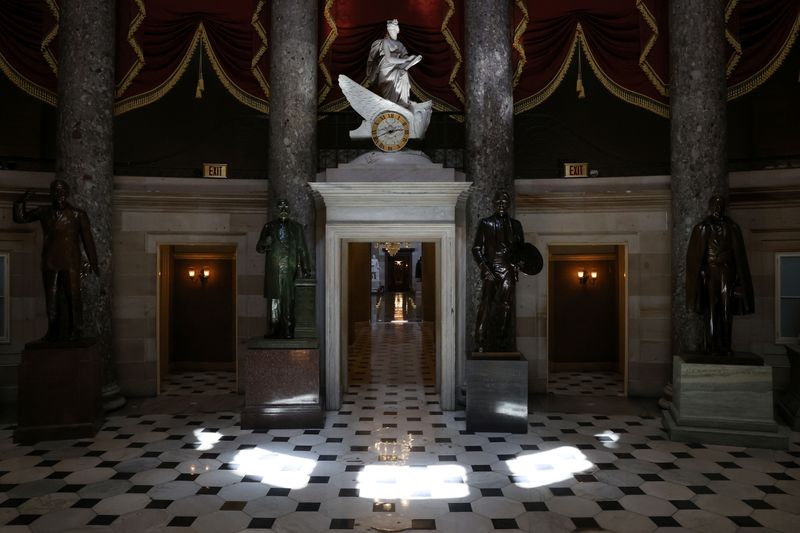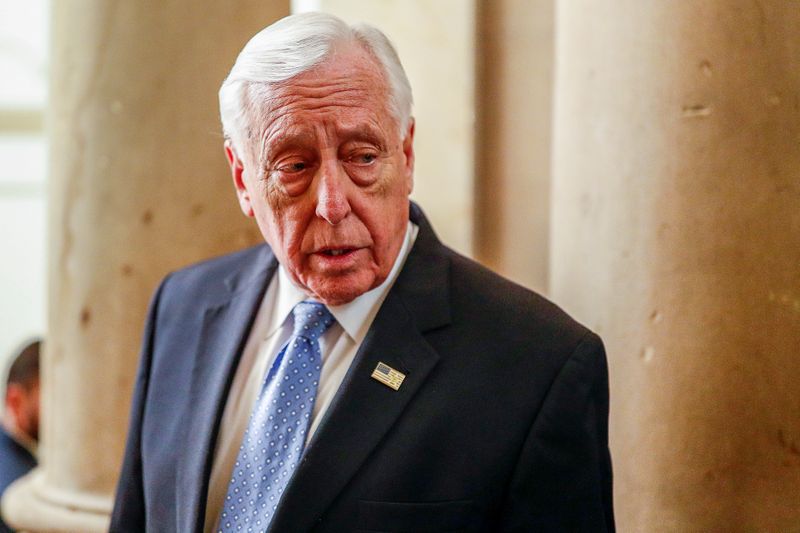By Susan Cornwell
WASHINGTON (Reuters) - The U.S. House of Representatives is looking "very closely" at how its members could vote from outside the Capitol as a coronavirus-forced recess looks poised to last into at least next month, the chamber's No. 2 Democrat said on Wednesday.
That marks a change from recent weeks when both Democratic House Speaker Nancy Pelosi and Senate majority leader Mitch McConnell, a Republican, were publicly dismissive of calls for remote voting.
The coronavirus outbreak, which has killed more than 28,000 Americans and thrown more than 16 million out of work, has increased the urgency for Congress to adapt its working style as leaders of both parties say they need to authorize more money to fight the disease's heavy human and economic toll.
House majority leader Steny Hoyer said none of the leaders of Congress want remote voting to be routine.
"But in an emergency situation ... we ought to have an alternative," he told reporters on a conference call. "I want to assure you and the American people, it's being worked on very hard."
Leaders are looking at some of the technological ways remote voting could be done, Hoyer said.
But none of the approaches could be done immediately, because congressional rules would have to be modified and there would have to be agreement between Republicans and Democrats, Hoyer said. He noted lawmakers would also have to vote to bring about the rule changes necessary for remote voting. This would require more than 500 members to return to the Capitol, if both the House and Senate took the step.
Congress has not met in regular session since last month. Lawmakers in late March passed a $2.3 trillion relief bill on a voice vote. Congressional leaders decided this week to extend an ongoing recess until at least May 4.
Hoyer said lawmakers were still carrying out their traditional role of oversight over the administration, but acknowledged it was not as effective as committee hearings with administration testimony.
Senate Democrats on Wednesday unveiled a $30 billion plan to vastly increase nationwide testing for the coronavirus.
Senate Democratic leader Chuck Schumer said he has been talking with Treasury Secretary Steven Mnuchin on a new coronavirus response bill, which he hoped would include the Democratic testing proposal.
Republicans say the next bill, the fourth of the crisis, should simply add $250 billion to a recently approved $349 billion government loan program to help small businesses hurt by the pandemic.
President Donald Trump told a White House news briefing on Wednesday that $300 billion in loans to more than 1 million small businesses had been processed under the so-called Paycheck Protection Program.
McConnell and House of Representatives Republican leader Kevin McCarthy said in a statement late on Wednesday that, according to the Treasury Department and the Small Business Administration (SBA), the program would "exhaust its funding in a matter of hours."
Mnuchin and SBA administrator Jovita Carranza urged Congress to approve additional funds. "By law, the SBA will not be able to issue new loan approvals once the programs experience a lapse in appropriations," Mnuchin and Carranza said in a joint statement.
Meanwhile, the Supreme Court has already rewritten its own rules to allow it to continue functioning during the pandemic.

Its nine justices next month for the first time will hear cases argued by teleconference rather than in the courtroom, to ensure that court business can proceed at a time when public health officials are urging people to maintain social distancing.
